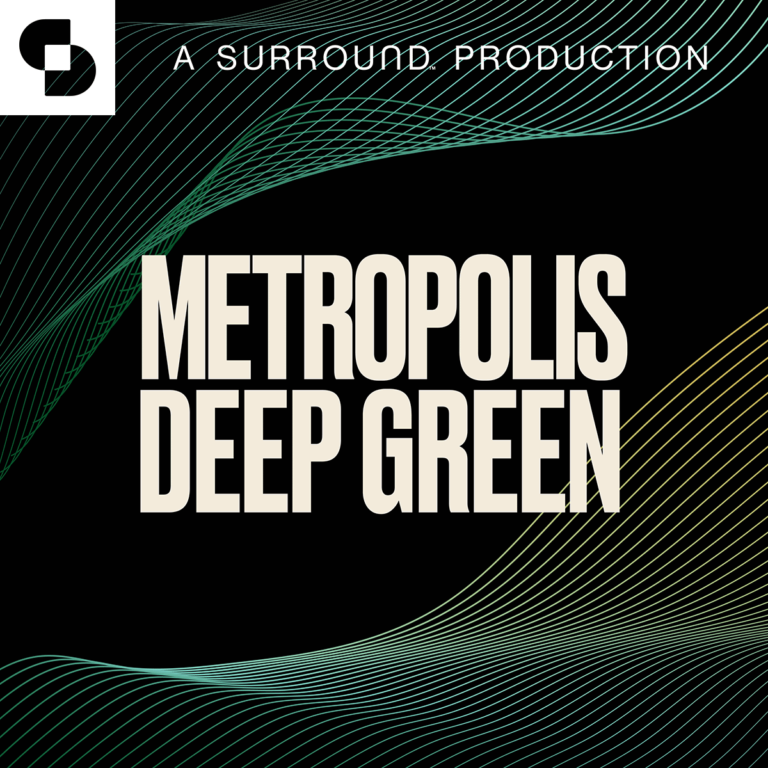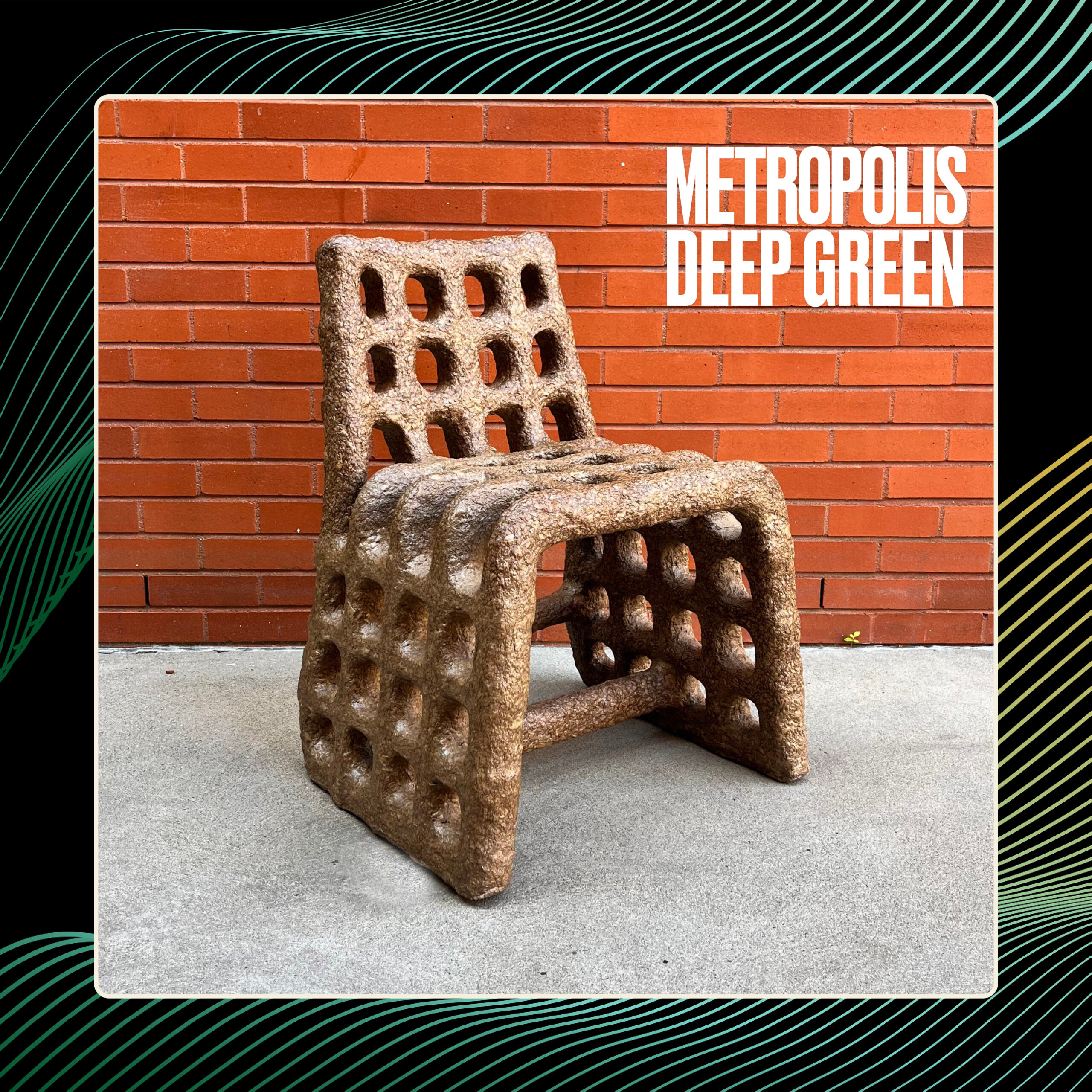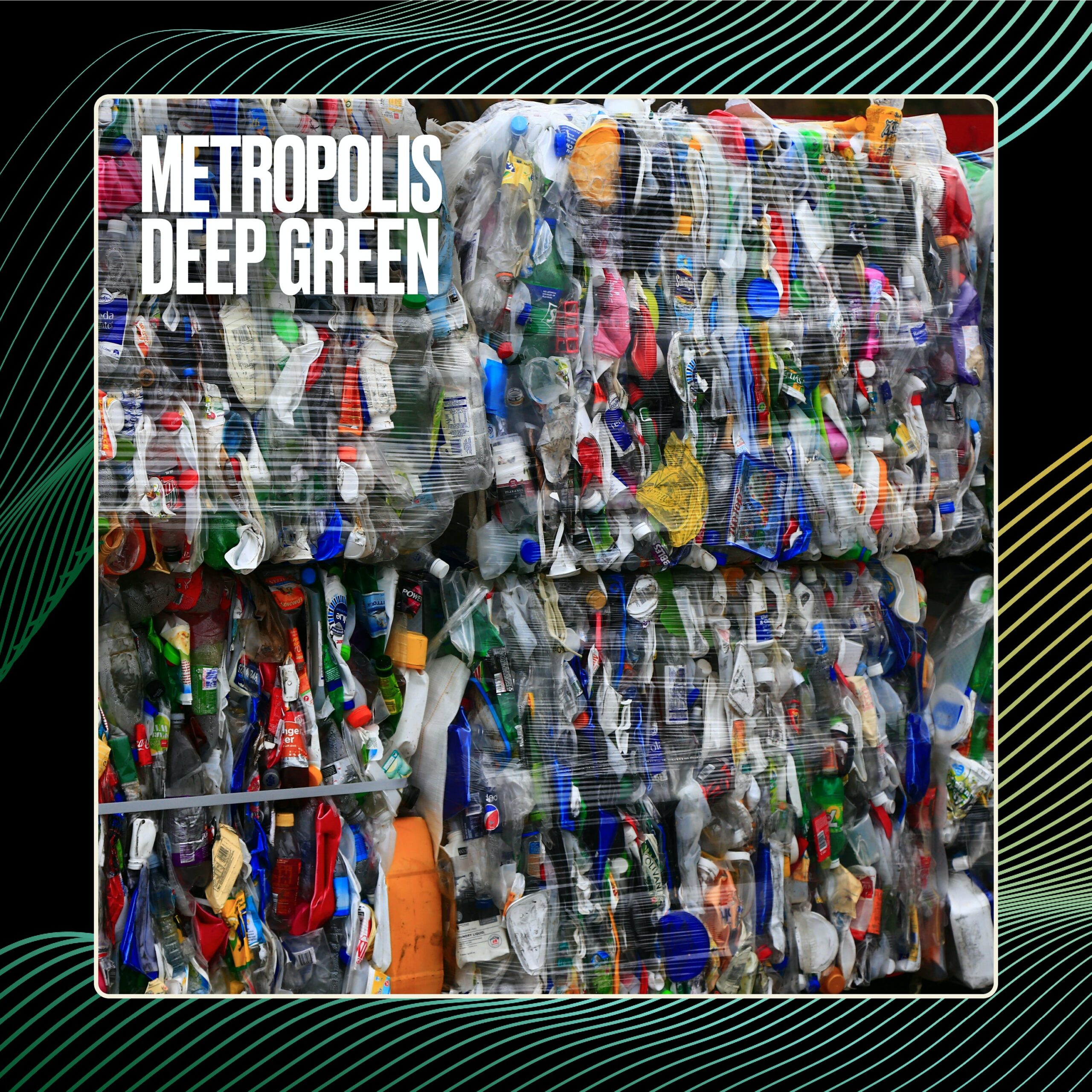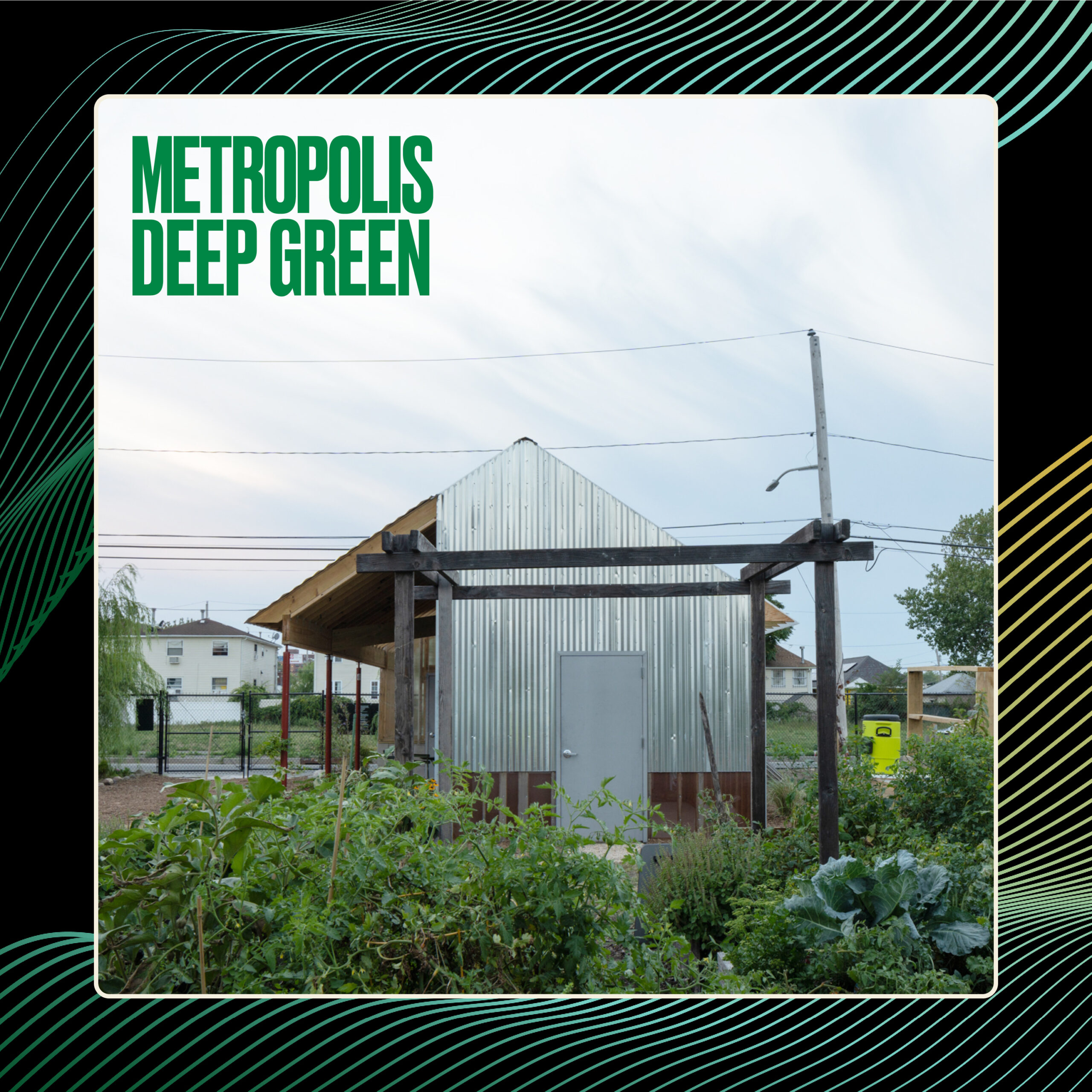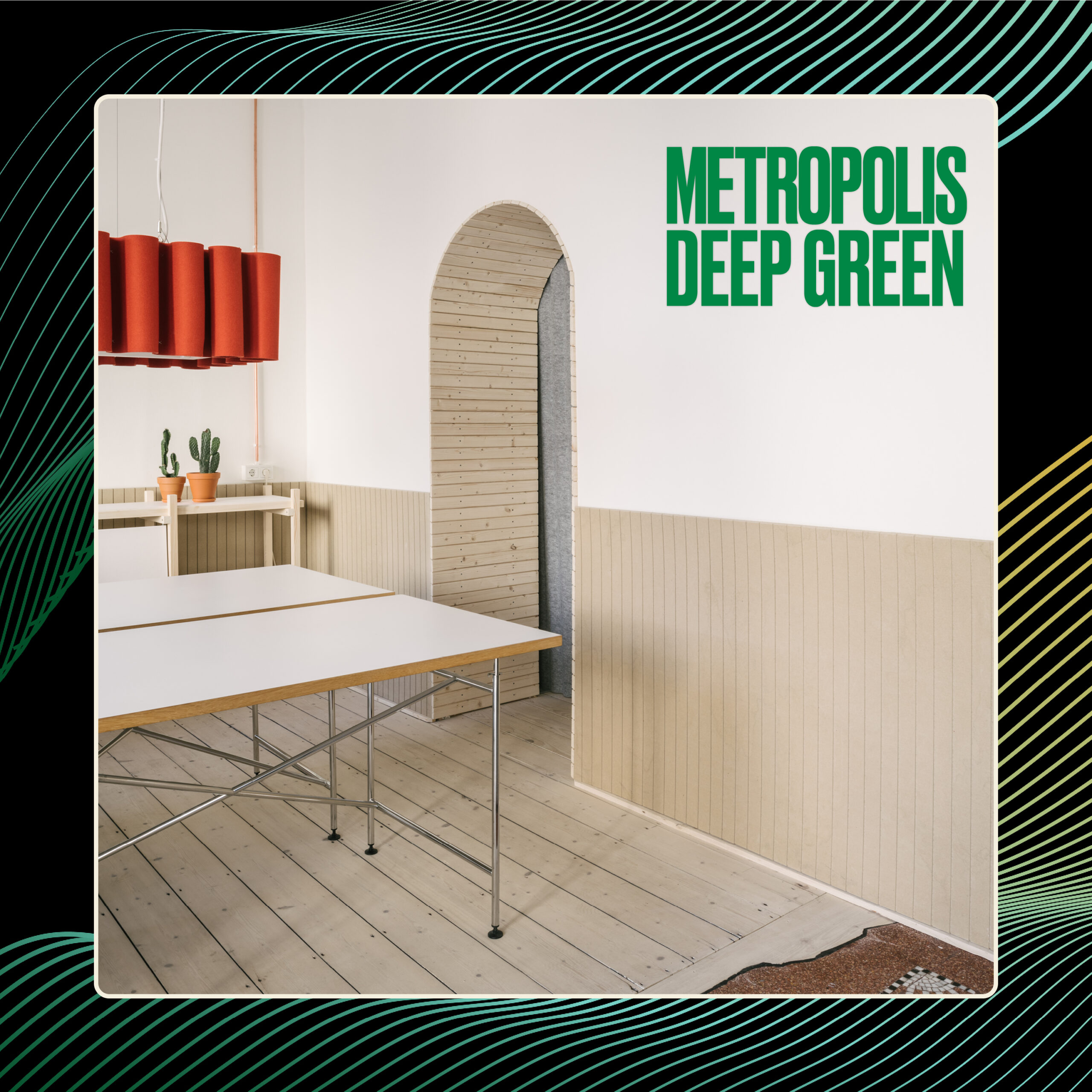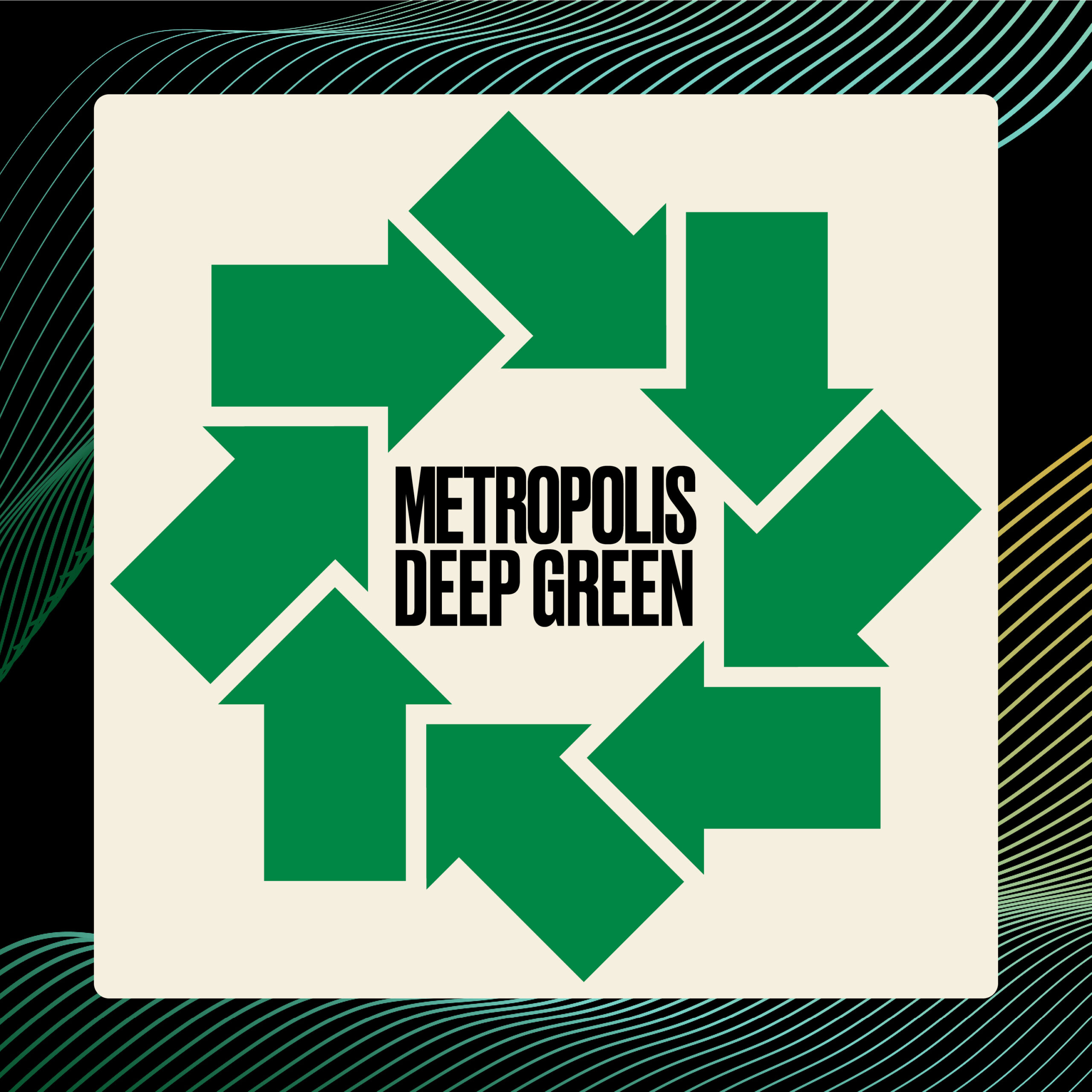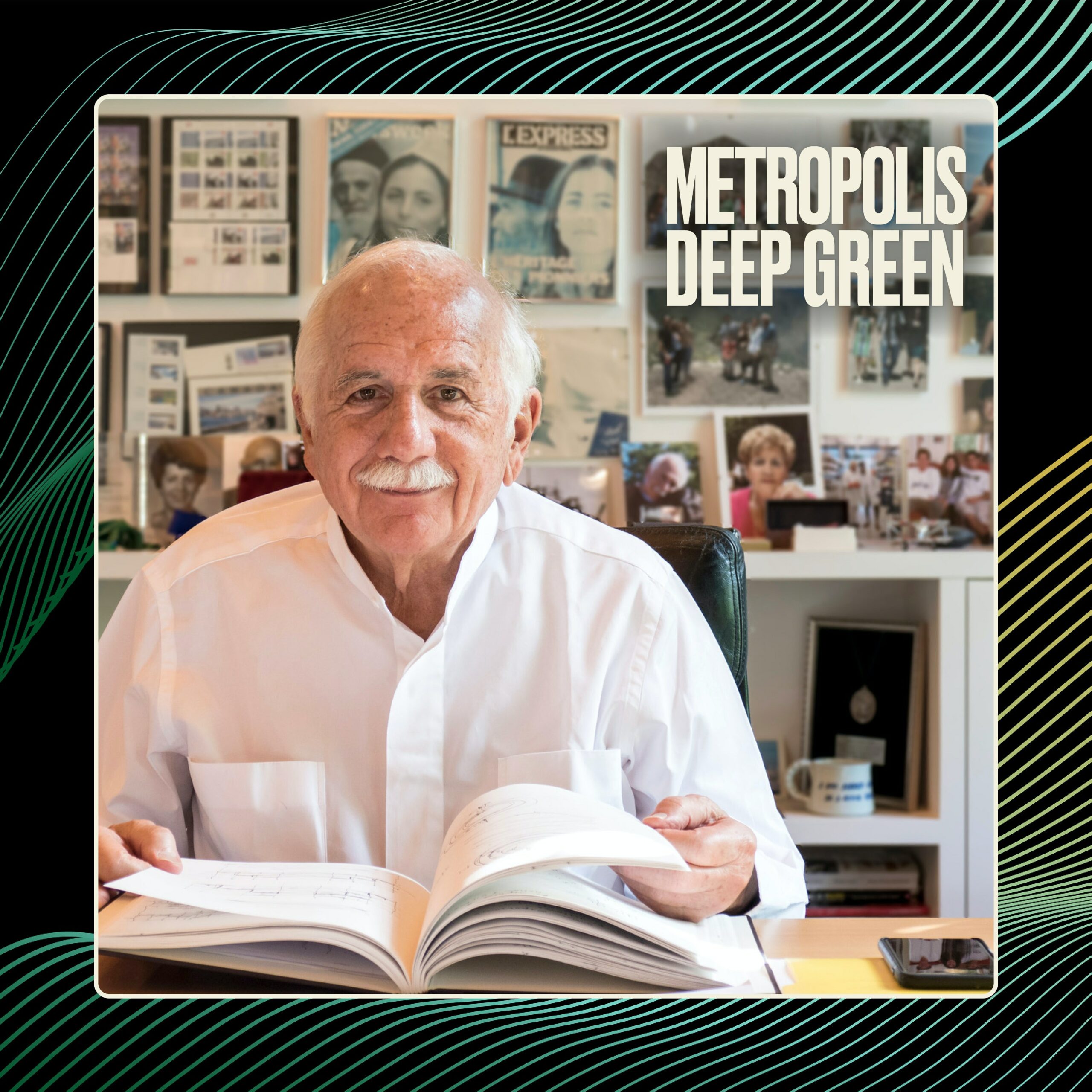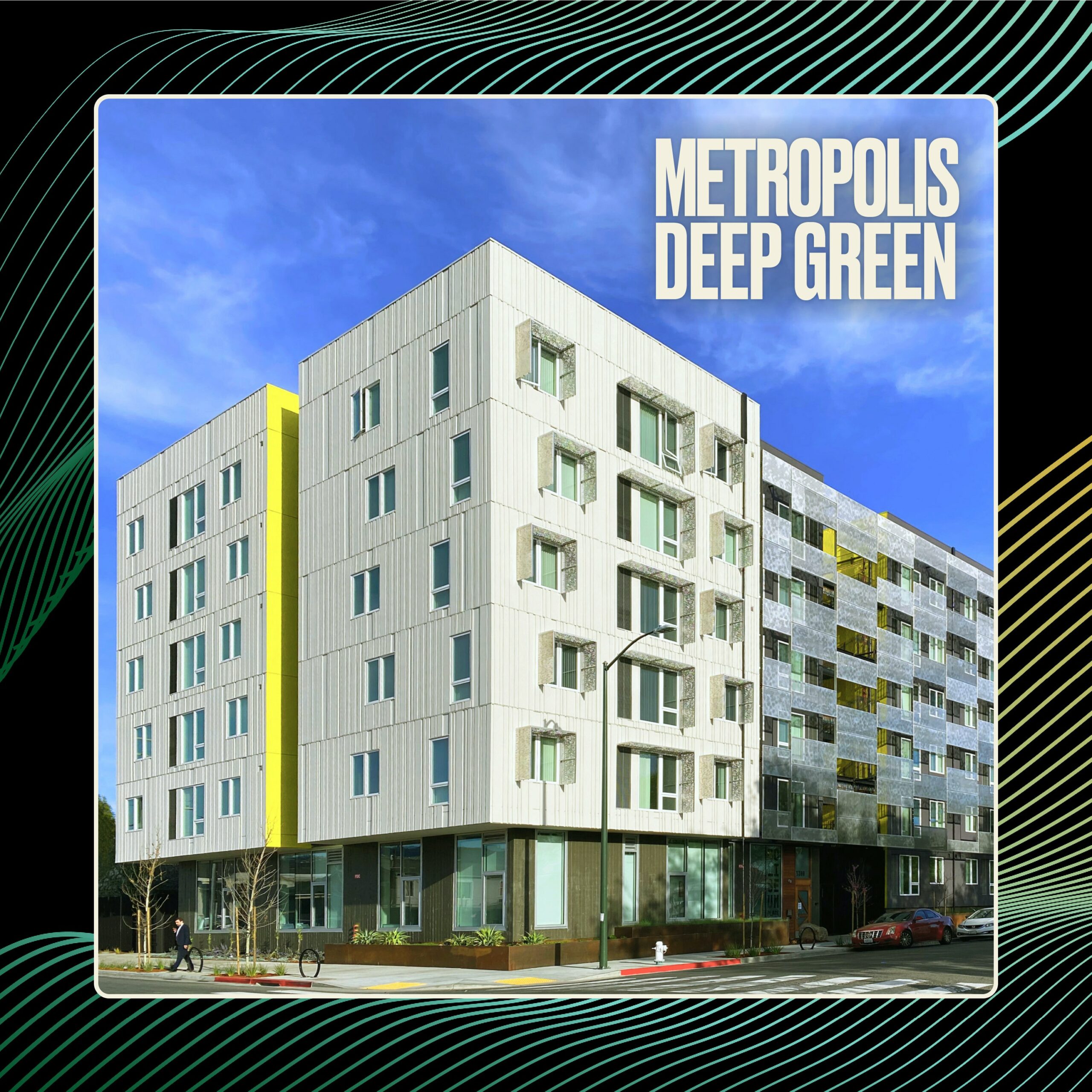This episode is brought to you in partnership with furniture retailer Room & Board.
The furniture industry has seen something of a transformation over the last decade with the rise of fast furniture: cheap, disposable pieces, often produced overseas with little to no oversight. Every year in the United States, about 12 million tons of furniture goes to waste, and 80 percent of that ends up in our landfills. In addition to contributing, through that enormous amount of waste, to our environmental problems, furniture is also often cited as one of the industries most at risk for exploitative labor practices.
But furniture retailer Room & Board was founded in 1980 as a business that’s different: putting sustainability at the heart of its operations since day one and producing 90 percent of its products in the United States. Most recently, the Minneapolis-based retailer achieved B Corp certification, an independent verification of its practices to show that it meets the highest standards of performance, accountability, and transparency on a range of factors from employee benefits to charitable giving, supply chain practices, and materials.
In this episode, Room & Board director of sustainability Emily McGarvey joins METROPOLIS editor in chief Avinash Rajagopal to discuss why the retailer decided to aim for B Corp certification, how they went about it, and the challenges they faced—but also what it means at a very fundamental level for the furniture industry.
Deep Green is produced by Rachel Senatore, Lauren Volker, and Hannah Viti, and is part of the SURROUND podcast network. Special thanks to Avi Rajagopal, Editor in Chief of METROPOLIS, for his insights. Recorded at the podcast studio by Vornado in the Penn 1 building in Manhattan.
avi: Welcome to Deep Green, a show about how the built environment impacts climate change and equity. I’m your host, Avi Rajagopal, and today’s episode is brought to you in partnership with Room Board.
Every year in the United States, about 12 million tons of furniture goes to waste. And 80 percent of that ends up in our landfills. The furniture industry has seen something of a transformation over the last decade, giving rise to this idea of fast furniture, cheap, disposable pieces, often produced overseas, little to no oversight.
Furniture, along with fashion, has been cited often as one of the industries really at risk for exploitative labor practices, in addition to contributing, of course, through that enormous [00:01:00] amount of waste, to our environmental problems.
Furniture Retailer Rumen Board was founded in 1980 as a business with a difference, really pointing in the other direction from this fast furniture movement. With 90 percent of its products made in the United States and with sustainability really at the heart of its operations since day one, most recently room and board, which is headquartered in Minneapolis and is a top 100 retailer in the United States achieved B Corp certification and independent verification of its practices.
To show that it meets the highest standards of verified performance, accountability, and transparency on a whole range of factors from employee benefits, to charitable giving, to supply chain practices, and materials.
BCARPS certification is a growing movement in the corporate world in the United States. And at its [00:02:00] heart, BCARPS certification really restates and redirects the fundamental purpose of a corporation. Until recently, the primary fiduciary responsibility of a corporation has been to its stakeholders in the form of shareholders or investors.
Financial performance has often been stated as the most important metric of performance for a corporation. But the B Corp moment headed by the non profit B Lab is revolutionizing that hundreds of organizations around the world are rethinking that primary purpose, recognizing that their stakeholders are not just their shareholders or their investors, but also their employees, their contractors, and the wide network of people who are impacted by their operations [00:03:00] today, we’re lucky enough to have , one of the key movers behind Room Board’s incredible achievement with the BCARP certification.
It’s Director of Sustainability, Emily McGarvey. Here’s Emily to talk to us, not only about why Room Board decided to aim for BCARP certification, how they went about it and the challenges they faced, but also what it means at a very fundamental level for the furniture industry.
emily: I’m Emily McGarvey and I’m the Director of Sustainability at Room Board. my role is really to lead our efforts around having a positive impact on people and planet. And so that means I set our sustainability strategy and public facing goals and then lead a lot of the project works that we can use our business as a force for good.
every day looks a little bit different. I could be joining a vendor call to discuss sustainably sourced wood or in a meeting talking about our diversity, equity, and inclusion strategy and, work. Or I could [00:04:00] be part of a discussion trying to figure out how to electrify our delivery fleet.
avi: That sounds like an amazing job, especially considering all the things that WomenBoard does. How did BCARB certification become part of your purview? Why did Truman Board decide to pursue B-carb certification?
emily: It really appealed to our leaders and to everyone it solidified our mission and values into the company. it offered an opportunity to share our overall company story with our customers, and it also helps to attract and retain great talent. And I started about two years ago and I remember going through the interview process and it, It came up where I was saying to people, you, it sounds like you guys are kind of a b Corp in how you approach business and how you’re just trying to do the right thing for people on planet. I was like, have you ever thought about doing B Corp certification? And a couple of our leaders were like, yeah, yeah, we, we looked.
Did it a couple years ago, but we ended up, not pursuing it at the time, but it’s something that we’ve looked at and thought about and [00:05:00] felt like it aligned with who we were. And so after I’d been with the company for six, eight months, our chief people officer said, I wonder if it’s time to relook at that B Corp certification.
And she asked if I had time and, to be able to actually . Lead small internal team. And so I was, given the opportunity to lead a small internal team to actually pursue the B Corp certification.
avi: I love that the impetus for the BeCup certification started with people. because, that’s really at the heart of BCARP is, how does it benefit people? But it’s also about how a company benefits the planet. , and really what the intersection of those things are. a lot of us might have Lumenberg furniture. If we don’t, we aspire to buying Lumenberg furniture someday. We don’t know a lot about the company itself and the people behind it. So just give us a quick overview of what the company’s like
emily: Room and Board is an independent, privately held retailer of modern furniture and home decor. We’re founded and based in Minneapolis, Minnesota, and we have twenty-two stores across the United States, and we [00:06:00] deliver our furniture nationally. We have over 1100 employees across retail distribution centers and our central office.
avi:
that’s a big network. You’re a household brand of course. And I’m not surprised at the scale of your operations. So what was your path to be certification like? Did you find you had to make any big changes in your operations or your manufacturing
emily: it’s a fairly rigorous process. It took us about a year to go through the entire process. we didn’t make any real significant changes to who we were. It was a lot of the documentation side of things, and we’ve always had the practice of doing the right thing for all of our stakeholders, our staff, our customers, our vendors, our communities, and of course the environment.
But going through the independent verification and then being able to sell. those efforts was a really cool process. but the overall certification really has three things that are needed. one, we need to meet a high standard of verified social and environmental performance, and that came through in a impact assessment, a questionnaire of [00:07:00] about.
200 questions asking us really detailed questions about our operations and how we do business. The second one was around public transparency and, and sharing what our score was of that. And then the third one was really about legal accountability to really balance profit and purpose in the legal framework of our, company.
and so that impact assessment was really across environment workers, community, customers, and then governance. but I think the. the coolest thing about the process overall is really the opportunity for continuous improvement. So even though we didn’t drastically change who we are to get B Corp certified, it still gives us a guide for what best-in-class businesses are doing, and there’s so much opportunity for improvement.
So even though we have B Corp certification, we’re using it as a guide to continually do more and to make our business even better.
avi: I think that’s incredible. So it’s not just about how well you’re doing in the moment because of course, as you said, Bloomberg was already doing a lot of the right things, [00:08:00] so you know, you were able to get certified. Now you’ve set this benchmark and now you have to improve on it. Right? , and that’s going to be an interesting journey.
emily: Absolutely. but now we’re part of a, like-minded group of businesses that are trying to do good for people and planet and use their business as a force for good. And so we’ll learn from that community of businesses and we’ll learn from other folks in the furniture industry. And hopefully we can set that example and we can continue to do good and then do even better.
avi: I think this is why BCARP is like a real movement in industry, the formation of the community. We’re gonna dive into that just a little bit. Later, but I want to get into the nitty-gritty of, , the actual BCOP certification and all the different aspects that you had to recognize. So let’s start with the thing that, , the general public and your customers know you best for, which is your furniture.
How does RuinBoard select and source materials and components in a responsible way?
emily: overall it’s really looking at more [00:09:00] renewable or more recycled sources for materials and components. so if you think about room and board furniture, we have a lot of wood upholstered fabric, leather, steel, plastic, and then cushioning, like foam feathers and down. And so, it’s how do we try to get more renewable and more recycled sources of all those things.
so for all the major materials that we have used, I created a sustainable material guide. Guidelines, and that’s actually on our website. And that really is also about continuous improvement. So what are the minimum guidelines we have for our different major materials, and then how do we continue to get better?
And so I can use that as a guide with the product team internally and also with our vendor partners as we just continue to look at what does better and more sustainable materials mean. for example, sofas and chairs is really our largest product category. when you look at a sofa, we have all of our sofas have sustainably sourced wood frames.
The foam inside of it is Certipure US certified. We have responsible down in feathers, and then we have no added chemical flame retardants. And that’s just on the [00:10:00] inside. And so on the outside we have, over 60 indoor upholstery fabrics that have recycled content and over 80 upholstery fabrics with the Green Guard Gold certification.
So that’s just one example of how we’re going product category by product category and looking at the materials we’re using and then thinking about how do we use better, more renewable, more recycled sources.
avi: You know, when we bring a sofa home, we’re not thinking about. That one sofa represents so many different, supply chains of materials. , so much more complex and every material and component has its own. Issues with environmental responsibility and its own best ways to tackle them.
You mentioned green guard gold, that’s of course about indoor air quality. So it’s about the fact that these , textiles while they’re in your home, are not putting any harmful, chemicals into the air, , that might negatively impact the health of the people around them. And that’s absolutely fantastic.
Every single component has something like that. Which [00:11:00] is so great. So now you have all of these amazing materials. You’ve made sure they meet all these certifications. How then do you manufacture in a responsible way?
emily: Room and board is a retailer, and we work with about 150 vendor partners that do our manufacturing. And we recognize that our success is very much tied together. And so we partner on everything, design, quality, durability, and sustainability. About 90% of our products are actually made in the U.S.
And so that really helps support American crafts people, jobs, their local communities. But it also means that a lot of the materials that we’re sourcing are more local. , about 80% of our wood is coming from North America. And we also work with, several U.S textile mills. going even one step further back into the supply chain.
And so we have upholstery fabrics that are made in the US as well. And so all of that not only supports. America and communities and jobs. But it also is bringing materials so that they don’t have to travel as far. So we have less [00:12:00] transportation than a more global supply chain. So we, so some of our materials will come from an American Forest to an American manufacturer and then to our twenty-two showrooms across the country.
and that type of localized supply chain is really cool and is also really sustainable.
avi: Does that also mean you have more visibility into your supply chain? Keeping your vendor so close, , does it also mean that you’re able to examine those materials and components for some of those sustainability concerns you mentioned earlier? , maybe even a little better and a little deeper.
emily: I believe so. Yes. being in the same time zone is always helpful. and then also the long standing partnerships. Room and board has some partners that have been with us since we started. So we have partners that have been with us for 5, 10, 15, 20, even 40 years. So not only is the local proximity make it easier being in the same time zone, but also long-standing partnerships means that you have built a business [00:13:00] relationship over time.
And that’s again, how our success is tied together. There’s a really, , deep understanding and a deep trust between us and our vendor partners.
avi: , you mentioned trust with your partners, , that kind of relationship with stakeholders, whether it’s your vendors, your employees, , your customers is also a big part of PCARP. And, it was the starting impetus for this whole, , initiative for you.
Because of course it was a people question first. How does Ruman board make sure it benefits all these different stakeholders?
emily: with our staff, we have, a lot of generous benefits as well as the fact that our retail staff are salaried and not commissioned. that’s a difference from a lot of places in the industry. , we also have profit sharing for all of our staff members, and so our profit sharing for the year just came out and then we look at different holidays. So about two years ago, we added the election day as a holiday, which allows everyone the opportunity to vote, but then also some of our staff were able to volunteer at the different voting sites. So that’s [00:14:00] a, really cool, benefit that we have.
Then one other thing, we were just recognized by CNBC a few months ago, We actually have a pickleball league at our central campus here in Minneapolis, and there is an amazing amount of people that play pickleball over lunch, here at Central Campus.
Room and board recognizes that when we are healthier, , physically, mentally, socially, we actually can go and do better work. And so that’s been a really, fun thing. So I am not personally part of the Pickleball league, but I think, that might have to be a New Year’s resolution for 2024. But from, other stakeholders from the community standpoint, nationally, room and board donates 2% of our profits to organizations focused on the environment, communities, and the arts. And so that’s looking like partnering with organizations like Habitat for Humanity, the Nature Conservancy, the Arbor Day Foundation.
And then we also have local partners where we’re volunteering and donating in each market. So here in Minneapolis, we partner with Bridging and we donate furniture that we aren’t able to sell. So we have these different partnerships where we [00:15:00] can really go out into our local communities and hopefully benefit that community.
avi: That’s the interesting thing about the B-Corp framework. It recognizes that companies themselves are communities, but also that companies sit within a sort of, radiating network of impact, with all of these stakeholders and ultimately the customers and then maybe back to the company.
and so in the process of focusing on the impact that a company makes, I think the idea of B-Corp is also to. Transform corporations themselves. how do you think the B-Corp certification is going to shape Ruman board as a company in the future?
emily: Well, I think part of it is accelerating the impact that we have , and the work that we’re already doing. , but part of the certification process, and I mentioned this a little bit earlier on, , there was. The impact assessment that really verified your social and environmental impact. But there was also a piece around accountability and it really does change your legal framework.
All businesses have a fiduciary [00:16:00] responsibility to do what is in the best interest of their shareholders. And so really what that means is profit is making sure that the company is still gonna be around for years to come and, doing things that are, are. The right thing for profit.
So when you become a B Corp, we changed our articles of incorporation to include all stakeholders. so that means not only doing what’s right for profit, but also doing what’s right for staff and customers and community and the environment. that’s a big shift. And that is. An incredible shift and that really helps shape the future of Room & board because we will be balancing purpose and profit and considering people and planet in our decision making.
So even 20 years from now, 50 years from now when, I may have retired or there’s new leadership in place, we’ll have embedded that mission into our legal framework. It’s, it’s more than just, reaching a certain score on an assessment. It truly is embedding into the legal framework of the company.
I think is really special and [00:17:00] really changes a, b Corp and, and who we are. And then we’re able to really, push ourselves and move faster on the actual work. And so that’s an exciting time as we look at what are we doing with materials? What are we doing with operations?
What are we doing with, with staff and diversity, equity, inclusion, so we can work on those, , projects and work on that positive impact. But our true legal framework. Has been changed and improved so that we can hold onto that mission and those values long into the future.
avi: As you transform as an organization, within an industry that has really seen a lot of change, not for the better over the last couple of decades. I started this episode talking about fast furniture and this real problem we have furniture made that’s just good enough made without much oversight into materials, , and that ends up in landfills, ends up really harming people.
We [00:18:00] have a huge municipal solid waste problem around furniture here in the United States. , is there some hope, within Truman board that a brand of your size and your reputation. Taking B-Corp certification on in the furniture industry might have some kind of larger impact, beyond your own company.
emily: Ultimately we want other people to join us. We want other people in the furniture industry and beyond to also use their business as a force for good, whether they’re B Corp certified or if they just have the intent and want to have the positive impact. ’cause I think you’re right, the furniture industry does have some real challenges around furniture waste and, and fast furniture and things like that.
And some of those challenges are only gonna be solved through industry collaboration. So if there are more companies with a similar goal of balancing purpose and profit will hopefully have more partners together that can tackle those big problems.
avi: Yeah. And I assume it means, it’ll also level the playing [00:19:00] field for your vendors, for your stakeholders. know, as they say, you know, a rising tide lifts all ships, right? We want to see a whole economy around furniture. Really focus its effort on positive impact. And I think Room Board is making such great efforts towards that.
Emily, now that you’ve hit this milestone, what’s next on your to-do list, related to B-corp certification? What are some of the things, , you have your eye on in terms of the continuous improvement?
emily: I think that this is really gonna help accelerate some of the work that we already have underway. , and so some of the things that we’re looking at for 2024 is really how do we accelerate our diversity, equity, and inclusion work? , we have our vision and roadmap and we really wanna focus 2024 on more training and then even metrics and measurement.
also from a community perspective, really looking at our volunteering efforts and how do we push ourselves on measurement and tracking our volunteer hours. So we’re really able to measure the impact that we have. materials we’re really looking at [00:20:00] increasing the recycled content across textiles, wood.
Plastic steel and then increasing some of those certifications related to cleaner chemistry. and then finally in our operations, we have a goal to, to reach a hundred percent renewable electricity by 2030, and we’re about 70% right now. And so we’re exploring additional sites for rooftop solar. The central campus headquarters that I’m sitting in right now, we just finished putting Rooftop Solar on this campus this year, and so that’s exciting. and then we also have been working on our waste diversion for our operations. So we have a, goal that we actually just beat. We have a 75% waste diversion goal for our operations, and in 2023 we just hit 83% waste diversion.
So now we have our site set on 90% waste diversion , in the coming years. Those are just a couple of the things that we’re working on, and really hoping that we can use our business as a force for good and accelerate the good impact that we’re having.
avi: If you want to know more about Room Board’s [00:21:00] commitments to sustainability, as well as their landmark BCARP certification, head on over to roomandboard. com slash sustainability. That’s roomandboard. com slash sustainability. Deep Green is a production of the Surround Podcast Network. Today’s episode was brought to you in partnership with Room and Board.
Thank you to our guest, Emily McCarvey, and all the people who make Deep Green possible. Producers Hannah Vidi and Rachel Sinatore, and Metropolis Senior Editor Lauren Volker. You can find more information about Deep Green and our other shows at surroundpodcasts. com, that’s podcasts with an S, surroundpodcasts.com, and episodes are of course available wherever you get your podcasts.

